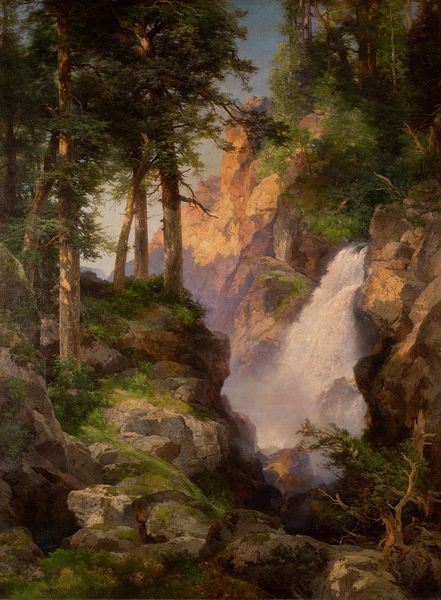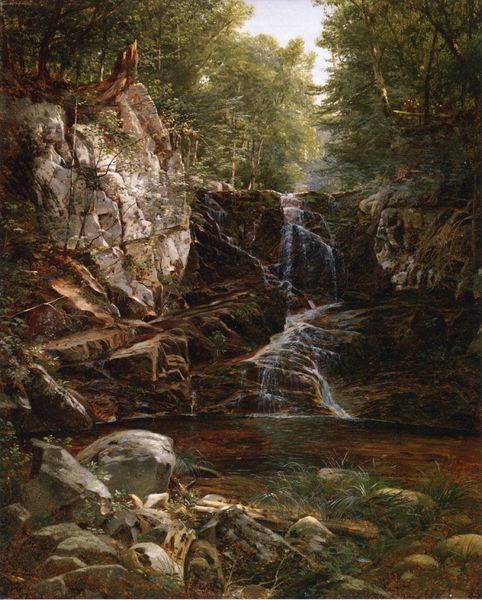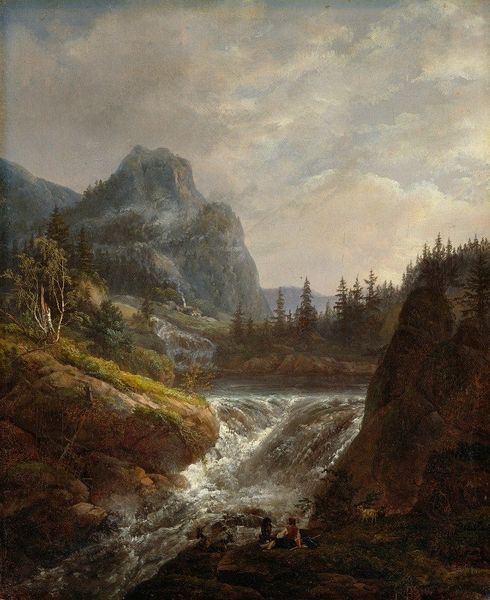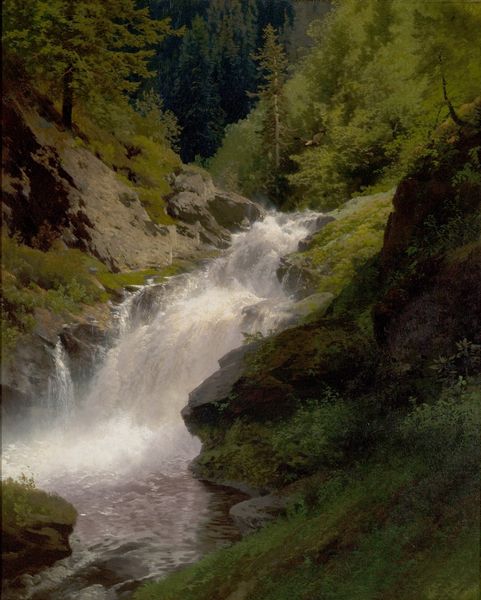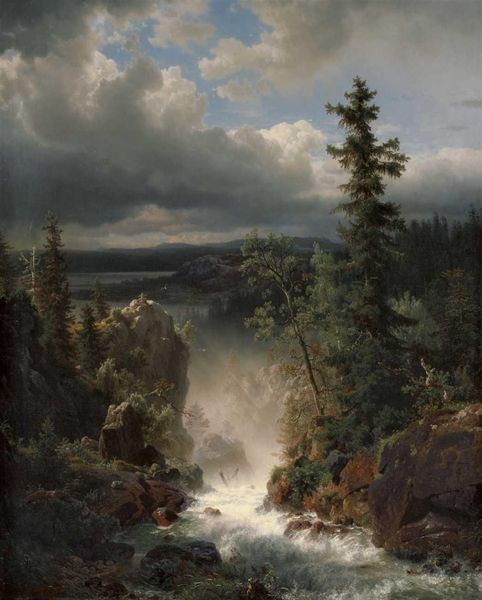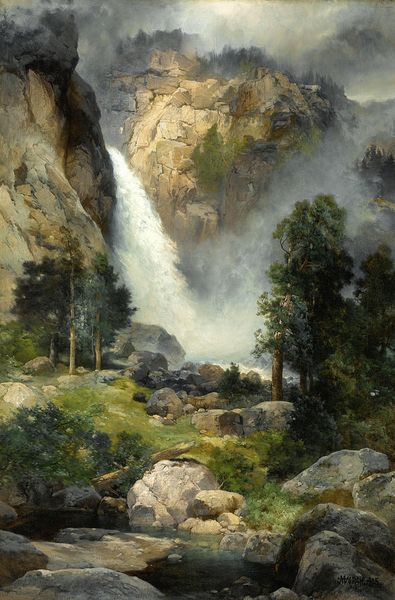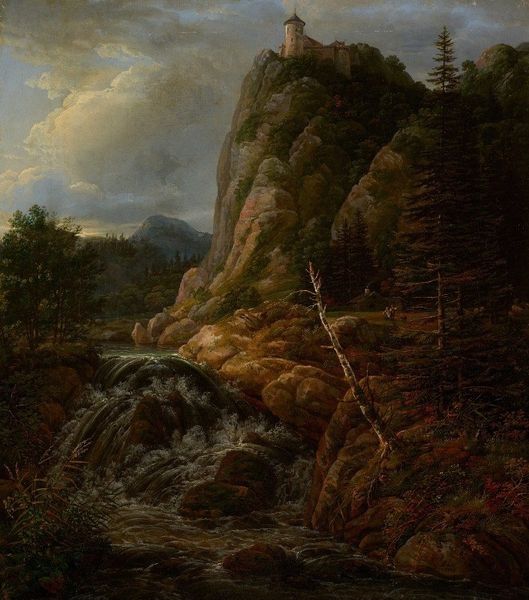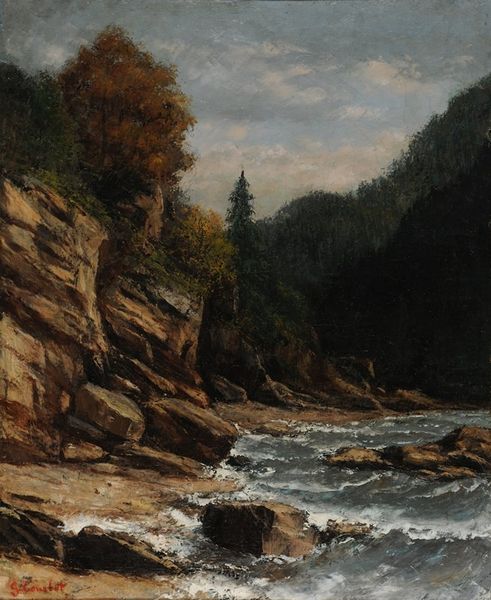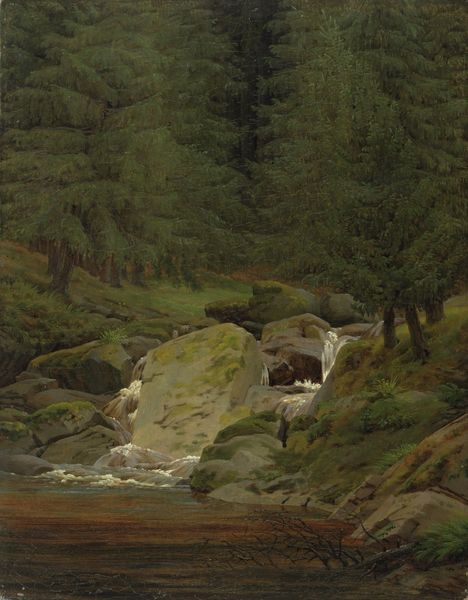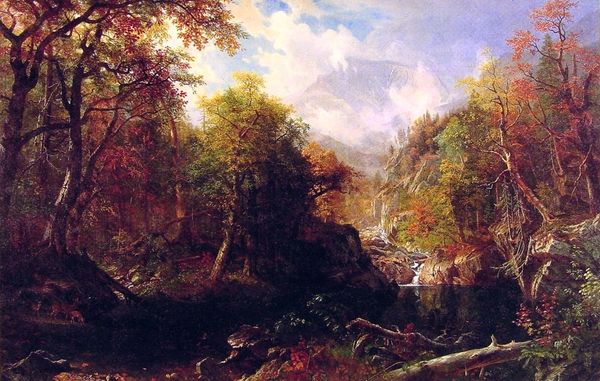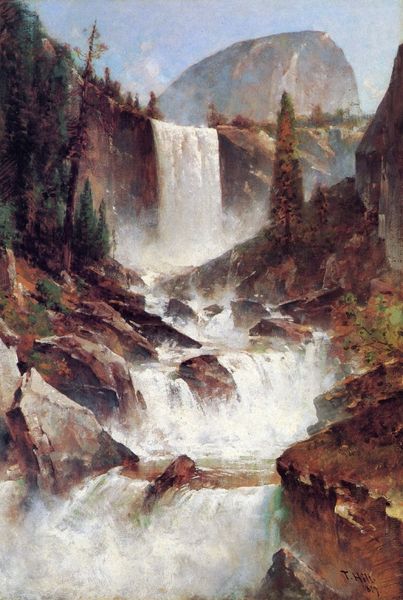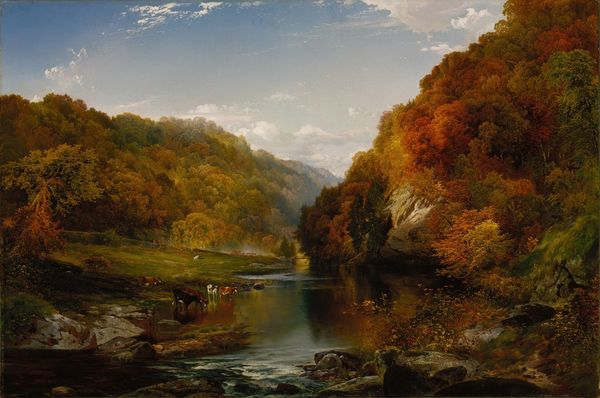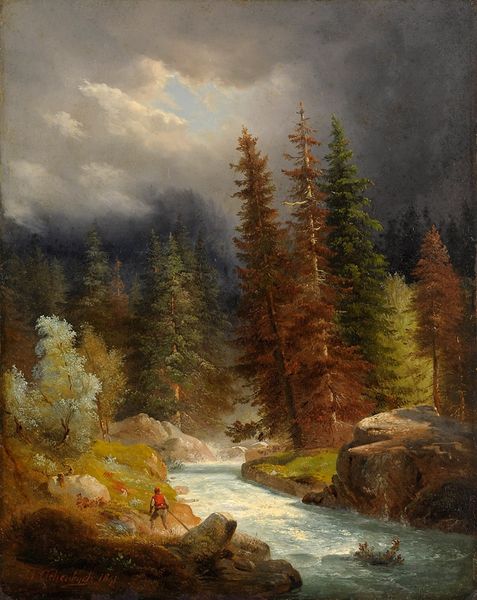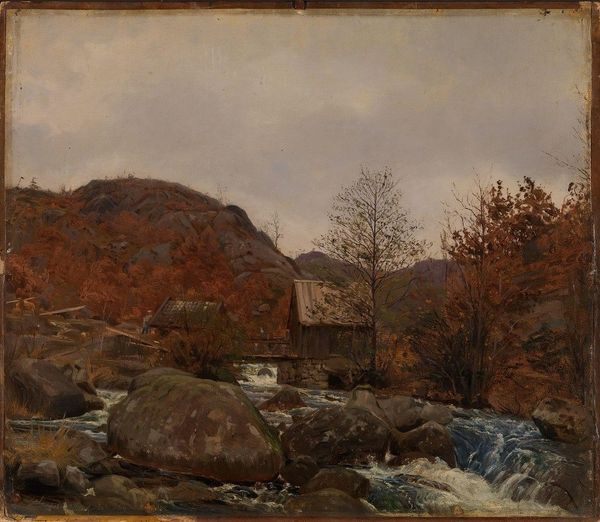
painting, oil-paint
#
painting
#
oil-paint
#
landscape
#
nature
#
form
#
oil painting
#
mountain
#
hudson-river-school
#
nature
#
realism
Copyright: Public Domain: Artvee
Curator: Here we have Albert Bierstadt's "Glen Ellis Falls," rendered in oil paint. Although the artwork's creation date remains unspecified, it firmly situates itself within the artistic traditions of the Hudson River School. Artist: Whoa. I’m immediately drawn to the dark, almost secretive, energy. It's not all sunshine and rainbows like some landscape paintings, you know? There’s a cool, damp feeling radiating off it, almost as if you could hear the water trickling. Curator: That resonates, actually. The Hudson River School artists weren't just painting pretty pictures; they were deeply invested in representing the American landscape as a symbol of national identity, often with an undercurrent of Manifest Destiny. Glen Ellis Falls then becomes less about literal representation and more about asserting dominion over nature. Artist: Maybe. But looking at the way the light filters through the trees and bounces off those mossy rocks, I also think about the artist’s awe and the almost dizzying scale of nature. The water falling seems to represent nature’s enduring strength—a calming persistence if you ask me. Curator: True, though that romantic idealization overlooks some crucial historical aspects. Consider how the representation of unspoiled wilderness often erased Indigenous presence and land stewardship, legitimizing colonial expansion and resource exploitation. Artist: Oh, man, that puts a damper on my peaceful waterfall vibes, for sure. I guess the romanticism is…complicated. Though can’t it be both a statement of colonialism *and* just beautiful at the same time? Or am I just being naive? Curator: That is where the tensions exist! Acknowledging those historical undercurrents alongside any potential beauty allows us a far more complete reading. To truly look, we need to consider what's represented *and* what's left out. Artist: Right, right. It makes me think…artists today painting nature—what responsibility do *they* have, you know, compared to someone painting a hundred years ago? What are they saying about *our* place in nature now? So many things to consider! Curator: Absolutely. Approaching art with this lens turns simple appreciation into an active dialogue about ourselves and our shared past. Artist: Well said. Guess I won't just be mindlessly enjoying landscape paintings anytime soon! This painting definitely gave me something to think about.
Comments
No comments
Be the first to comment and join the conversation on the ultimate creative platform.
